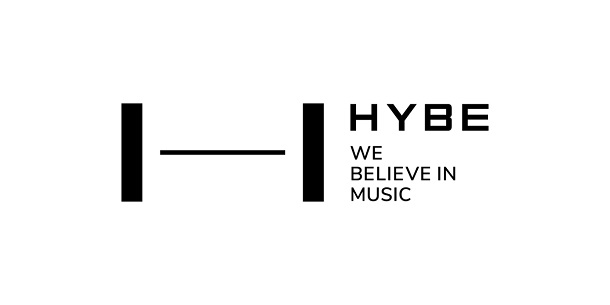Before the end-of-year countdowns next month, I like to take a look at many of K-pop’s biggest agencies and see how their year went. Obviously, 2023 is not over yet so any upcoming changes to an agency’s grade will be reflected next year. Following SM Entertainment, YG Entertainment and JYP Entertainment‘s analysis, it’s time for the last of the so-called “big four”: HYBE Labels!
As usual, the thoughts below are my own and aren’t privy to any insider information. The purpose of these articles is to determine how well K-pop agencies are serving their artists and fans. There will be plenty of subjective critique.
The Good
One of these days, I’ll go back and read all my HYBE/Big Hit features chronologically, because their transformation from 2016 until today is nothing short of astonishing. In this short stretch of time, they’ve become the de facto leader of the K-pop industry, growing so big that they might prefer to do away with the “K” part of the equation entirely (more on that below…). More than any other agency, they have their vision set on global domination. And whether you like it or not, they’re well on their way.
HYBE can’t exist in a vacuum because their strategy necessitates gobbling up smaller fish to expand their empire. You can’t write about HYBE without including their subsidiaries Pledis, Source, KOZ, BeLift and Ador – all vital components to their success.
And by and large, HYBE is well-acquainted with success. Throw a stone in any direction and you’ll find an act who enjoyed immense 2023 success. Seventeen set staggering sales records, greatly expanding into other East Asian markets. Sub-unit BSS scored an enduring chart hit, further expanding the group’s appeal with the general public. NewJeans and LE SSERAFIM continue to lead girl group trends both domestically and globally. TXT made new inroads into multiple markets and ENHYPEN shift a million+ copies of their albums with ease.
New group BOYNEXTDOOR debuted under Zico’s KOZ Entertainment, quickly finding a sizable fanbase and establishing their own sound. And after many delays, fromis_9 released a well-regarded album with strong sales – proving that the HYBE brand is a reliable boost for artists who had previously sold more modestly.
BTS entered their military enlistment era this year, pushing back any group comebacks for some time. Instead, HYBE focused on solo efforts from the members. All were commercially successful, though each targeted a different musical niche. Recently, member Jungkook has emerged as a convincing global star, recording in English and enlisting several big-name artists as features. The music wasn’t half-bad, either! And although HYBE is certainly feeling the effects of BTS’s hiatus, they can rest comfortable knowing that the entire group renewed their contracts for the next few years.
HYBE is not lacking in commercial firepower, buoyed by a roster overflowing with artists the entire world is interested in.
The Bad
Objectively, it’s hard to find many weak points in HYBE’s empire. They’ve essentially formed the K-pop Avengers, buying up or investing in their biggest competitors. So, when thinking about the drawbacks of the corporation, we must approach it more subjectively.
The clue is in that word “corporation.” HYBE produces a lot of music, and some of it is quite good. But at its worst, the company can feel like fast fashion, churning out trendy tracks with the speed and chintziness of a Forever 21. I happen to enjoy Forever 21, but its clothes aren’t built to last. HYBE is still quite new as an entity, but I wonder if its output is built to last, either. The company excels at capturing the attention of TikTok trends and securing flashy press releases, but how many stone cold classic, still-listen-to-them-in-fifteen-years tracks are they churning out these days?
K-pop has always been a trendy industry, but HYBE’s output feels especially hitched to (Western) pop trends. Most everything they release has a pop equivalent/inspiration, which threatens to undermine their status as industry leaders. I’d love to see them explore a sound that feels more idiosyncratic and focuses on pushing K-pop forward rather than simply appealing to TikTok trends and proven pop equivalents. As exciting as their groups’ visuals and concepts are, the music itself often feels extraneous. Some of their subsidiaries have a greater grip on this than others, but overall HYBE’s output feels the most faceless and underdeveloped of any of K-pop’s big agencies.
Just the other day, HYBE chairman Bang Si-hyuk suggested removing the “K” from “K-pop” altogether. While I can understand the drive behind this statement and the pride he must feel in taking his music and artistry worldwide, I can’t help but feel this attitude highlights some of my concerns with HYBE. In stripping away the elements that make you unique and outsourcing your product to an anonymous team of song camp creators, you strip away the cultural elements and individual perspective that makes art so engrossing in the first place. I, for one, don’t want a future of personality-free pop music.
2023 Grade: B-
What I’d like to see in 2024:
An expansion of HYBE’s sound — longer songs with more development and unique ideas
No more new acts/acquisitions/etc. Focus on established groups.
Some NewJeans and LE SSERAFIM title tracks that appeal to me!
Previous years: 2022 // 2021 // 2020 // 2019 // 2018 // 2017
